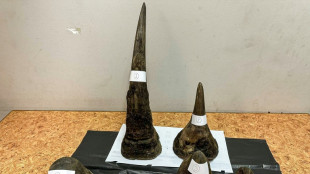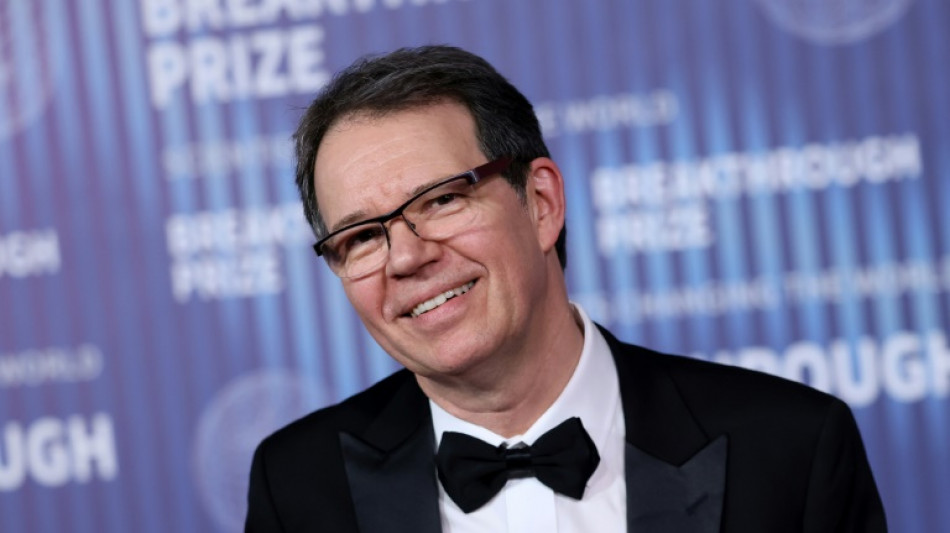
-
 No excuses for Shiffrin after Olympic team combined flop
No excuses for Shiffrin after Olympic team combined flop
-
Pool on wheels brings swim lessons to rural France

-
 Europe's Ariane 6 to launch Amazon constellation satellites into orbit
Europe's Ariane 6 to launch Amazon constellation satellites into orbit
-
Could the digital euro get a green light in 2026?

-
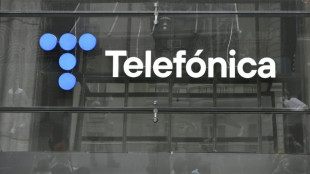 Spain's Telefonica sells Chile unit in Latin America pullout
Spain's Telefonica sells Chile unit in Latin America pullout
-
'We've lost everything': Colombia floods kill 22

-
 Farhan propels Pakistan to 190-9 against USA in T20 World Cup
Farhan propels Pakistan to 190-9 against USA in T20 World Cup
-
US to scrap cornerstone of climate regulation this week

-
 Nepal call for India, England, Australia to play in Kathmandu
Nepal call for India, England, Australia to play in Kathmandu
-
Stocks rise but lacklustre US retail sales spur caution

-
 Olympic chiefs let Ukrainian athlete wear black armband at Olympics after helmet ban
Olympic chiefs let Ukrainian athlete wear black armband at Olympics after helmet ban
-
French ice dancers poised for Winter Olympics gold amid turmoil

-
 Norway's Ruud wins error-strewn Olympic freeski slopestyle
Norway's Ruud wins error-strewn Olympic freeski slopestyle
-
More Olympic pain for Shiffrin as Austria win team combined
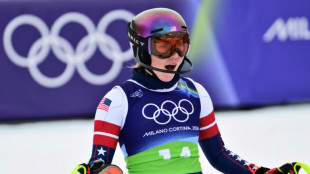
-
 Itoje returns to captain England for Scotland Six Nations clash
Itoje returns to captain England for Scotland Six Nations clash
-
Sahara celebrates desert cultures at Chad festival

-
 US retail sales flat in December as consumers pull back
US retail sales flat in December as consumers pull back
-
Bumper potato harvests spell crisis for European farmers

-
 Bangladesh's PM hopeful Rahman warns of 'huge' challenges ahead
Bangladesh's PM hopeful Rahman warns of 'huge' challenges ahead
-
Guardiola seeks solution to Man City's second half struggles

-
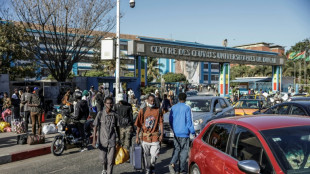 Shock on Senegalese campus after student dies during police clashes
Shock on Senegalese campus after student dies during police clashes
-
US vice president Vance on peace bid in Azerbaijan after Armenia visit
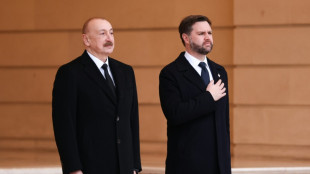
-
 'Everything is destroyed': Ukrainian power plant in ruins after Russian strike
'Everything is destroyed': Ukrainian power plant in ruins after Russian strike
-
Shiffrin misses out on Olympic combined medal as Austria win
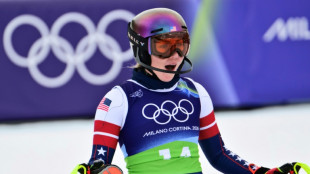
-
 EU lawmakers back plans for digital euro
EU lawmakers back plans for digital euro
-
Starmer says UK govt 'united', presses on amid Epstein fallout

-
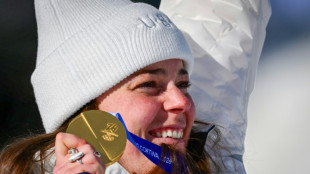 Olympic chiefs offer repairs after medals break
Olympic chiefs offer repairs after medals break
-
Moscow chokes Telegram as it pushes state-backed rival app

-
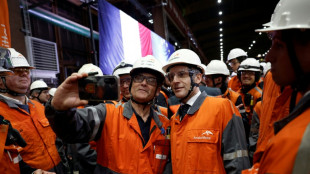 ArcelorMittal confirms long-stalled French steel plant revamp
ArcelorMittal confirms long-stalled French steel plant revamp
-
New Zealand set new T20 World Cup record partnership to crush UAE

-
 Norway's Ruud wins Olympic freeski slopestyle gold after error-strewn event
Norway's Ruud wins Olympic freeski slopestyle gold after error-strewn event
-
USA's Johnson gets new gold medal after Olympic downhill award broke
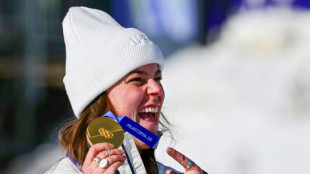
-
 Von Allmen aims for third gold in Olympic super-G
Von Allmen aims for third gold in Olympic super-G
-
Liverpool need 'perfection' to reach Champions League, admits Slot

-
 Spotify says active users up 11 percent in fourth quarter to 751 mn
Spotify says active users up 11 percent in fourth quarter to 751 mn
-
AstraZeneca profit jumps as cancer drug sales grow
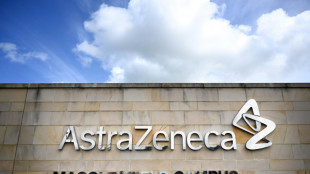
-
 Waseem's 66 enables UAE to post 173-6 against New Zealand
Waseem's 66 enables UAE to post 173-6 against New Zealand
-
Stocks mostly rise tracking tech, earnings

-
 Say cheese! 'Wallace & Gromit' expo puts kids into motion
Say cheese! 'Wallace & Gromit' expo puts kids into motion
-
BP profits slide awaiting new CEO

-
 USA's Johnson sets up Shiffrin for tilt at Olympic combined gold
USA's Johnson sets up Shiffrin for tilt at Olympic combined gold
-
Trump tariffs hurt French wine and spirits exports

-
 Bangladesh police deploy to guard 'risky' polling centres
Bangladesh police deploy to guard 'risky' polling centres
-
OpenAI starts testing ads in ChatGPT
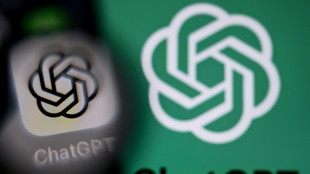
-
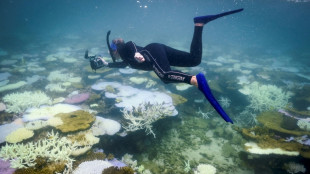 Three-year heatwave bleached half the planet's coral reefs: study
Three-year heatwave bleached half the planet's coral reefs: study
-
England's Buttler calls McCullum 'as sharp a coach as I ever worked with'

-
 Israel PM to meet Trump with Iran missiles high on agenda
Israel PM to meet Trump with Iran missiles high on agenda
-
Macron says wants 'European approach' in dialogue with Putin
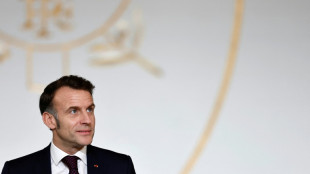
-
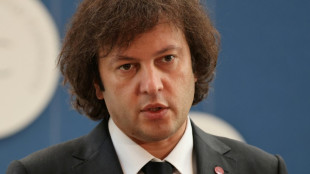 Georgia waiting 'patiently' for US reset after Vance snub
Georgia waiting 'patiently' for US reset after Vance snub
-
US singer leaves talent agency after CEO named in Epstein files

| SCS | 0.12% | 16.14 | $ | |
| RYCEF | 3.04% | 17.41 | $ | |
| RIO | -0.56% | 96.31 | $ | |
| RBGPF | 0.12% | 82.5 | $ | |
| CMSC | 0.02% | 23.59 | $ | |
| NGG | 0.06% | 88.44 | $ | |
| GSK | -0.1% | 58.95 | $ | |
| RELX | 0.66% | 29.675 | $ | |
| AZN | 3.19% | 194.198 | $ | |
| BTI | -2.51% | 59.65 | $ | |
| VOD | -0.99% | 15.329 | $ | |
| JRI | 0.08% | 12.82 | $ | |
| BCC | 1.28% | 90.17 | $ | |
| BCE | 1.33% | 25.965 | $ | |
| CMSD | 0.08% | 23.99 | $ | |
| BP | -6.92% | 36.68 | $ |

French-Canadian gets 'Oscars of Science' prize for cancer treatment
French-Canadian scientist Michel Sadelain was awarded an "Oscars of Science" prize in Los Angeles on Saturday for his research into genetically modifying immune cells to fight cancer.
The genetic engineer was awarded the Breakthrough Prize at a glitzy ceremony attended by tech giants such as Elon Musk and Bill Gates, and an array of celebrities including Jessica Chastain, Robert Downey Jr. and Bradley Cooper.
His work has led to the development of a new form of therapy called CAR-T that has shown exceptional efficacy against certain blood cancers.
"This prize is an extraordinary recognition," Sadelain told AFP on the red carpet at the Oscars Museum. "It's all the more of an honor because ... my scientific colleagues told me for a long time that it would never work."
Launched in 2010, the Breakthrough Prize awards "the world's most brilliant minds" in fields including life sciences, fundamental physics and mathematics, styling itself as the Silicon Valley-backed answer to the Nobels.
Dubbed the "Oscars for Science", founding sponsors include Sergey Brin, Priscilla Chan and Mark Zuckerberg.
Sadelain will split the $3 million prize money with American immunologist Carl June, who also led groundbreaking research into the field independently of his co-winner.
"The greatest pleasure, however, is to see patients... who no longer had a chance and who thank us, who are alive today thanks to CAR-T cells," said Sadelain.
Sadelain studied medicine in Paris, then immunology in Canada, before taking up postdoctoral research at the Massachusetts Institute of Technology in 1989.
- 'Living drugs' -
At the time, there was great interest in developing vaccines to train the immune system to recognize and destroy cancer cells, in the same way it can be taught to tackle foreign invaders such as bacteria and viruses.
After moving to the Memorial Sloan Kettering Cancer Center in New York, Sadelain developed a way to use a disabled virus to genetically reprogram human T-cells, so that they grew claw-like structures called antigen receptors, allowing the T-cells to target specific cancer cells.
Beyond recognizing the cancer, these Chimeric Antigen Receptor (CAR) T-cells, as Sadelain named them, were also given genetic instructions to enter a killing mode and to multiply, growing an army inside the body to eliminate the enemy.
Thanks to the groundwork laid by Sadelain and June, half a dozen US-approved CAR-T cell therapies are now available, and hundreds more trials are underway.
Patients' own T-cells are collected, modified outside the body, and then infused back into the blood, creating so-called "living drugs".
The treatment has proved effective against lymphoma, certain leukaemias and myeloma, a serious and complex blood cancer. Sadelain hopes that research will make it possible to "apply this treatment to other cancers".
One of the main challenges is to lower the cost of treatment, which costs over $500,000 -- a sum generally covered by insurance.
Around 20 other scientists were honored on Saturday at the Breakthrough Prize, in various categories.
Some of the research awarded included effective drugs to treat the underlying cause of cystic fibrosis, a genetic disorder that affects the lungs, and the discovery of the most common genetic causes of Parkinson's disease.
M.Thompson--AMWN
